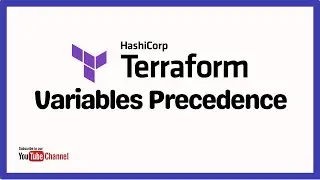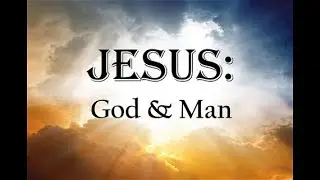One LORD God: One In Number or One In Unity? Echad or Yachid? - Deuteronomy 6:4
In this video we will cover one other common objection to the understanding from Scripture that God is unipersonal (consisting of only one singular conscious rational being). Most people who claim to believe in Jesus Christ say they believe in "one God." But the question arises as to whether God is one in number (unipersonal) or one in unity (tripersonal). Those who deny that God consists of one singular conscious rational being (the Father) will object by turning to Deuteronomy 6:4 and arguing that the Hebrew word for "one" is conveying a composite unity as we read about in Genesis 2:24. They argue that the one LORD God of Deuteronomy 6:4 is only one in essence and purpose (one in unity of multiple persons), but not in singularity of being. It's argued by many that if the LORD God in Deuteronomy 6:4 was only referring to the Father and not a composite deity, then the Hebrew word "yachid" should have been used instead of "echad" for the word we read in English as "one."
This video is going to expose the ignorance and even outright dishonesty of theologians who argue for the use of yachid to describe absolute numerical singularity. The Hebrew language is much like the English language in that one word can have multiple meanings. We would understand the meaning of a word such as "one" by examining the context. Context would determine the meaning of the word "one" to let us know if it is referring to absolutely one numerically or if it is referring to a composite unity. The Hebrew word "echad" is similar to our English word "one" in that it generally refers to an absolute numerical singularity (describing one single thing or entity) but it can also refer to a composite unity on rare occasions such as Genesis 2:24 regarding Adam and Eve being "one" flesh.
In order to understand why the word "yachid" wasn't used in Deuteronomy 6:4 regarding the LORD God being "one" we need to understand what that word means throughout the Old Testament. "Echad" is used 968 times in the Old Testament, while "yachid" is only used 12 times. If "yachid" refers to absolute numerical singularity, then why is it used only 12 times in the entire Old Testament? All one needs to do is look at how these words are used in the Old Testament to see that "echad" generally refers to absolute numerical singularity such as in Deuteronomy 21:15; Leviticus 5:7; Malachi 2:10; Ecclesiastes 4:8-10; Genesis 22:2, etc... "Yachid" on the other hand refers to an only child that is beloved, and can describe the feeling of being alone. It's never used as a general word for one in number. This is why it's only used 12 times in Scripture. "Echad" is, therefore, the correct word to use to establish absolute numerical singularity. This understanding is what set the Jewish religion apart from all other polytheistic religions. The Jews believed that God was absolutely numerically one and God never corrected their understanding.
The trinity doctrine was formulated to try and explain how God could be "one" in light of the distinctions between Father, Son, and Holy Ghost that we read about in the New Testament. Man brought their own ideas and imaginations to the Old Testament and turned the Hebrew word "echad" into a composite unity of persons and began arguing that "yachid" would have been the word to use to establish absolute numerical singularity with regards to God. This video reveals why this is totally false. If God would have been described as "yachid" in Deuteronomy 6:4 it would only convey what kind of God Yahweh is, a beloved and unique God. But if we want to know how many beings or gods Yahweh is, "echad" is the right word to use!


















![God the Father Was In Christ/Manifest In Flesh: Establishing the Deity of Jesus [2 Corinthians 5:19]](https://images.videosashka.com/watch/ysvSlJXe0Uo)












